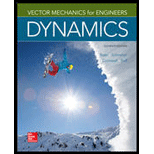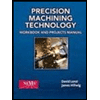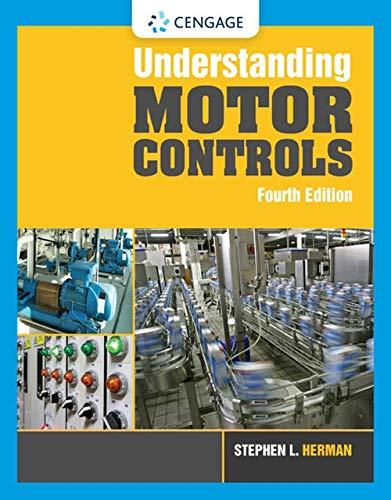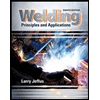
Concept explainers
Knowing that at the instant shown bar AB has a constant angular velocity of 4 rad/s clockwise, determine the angular acceleration (a) of bar BD, (b) of bar DE.
(a)
The angular acceleration of bar
Answer to Problem 15.132P
The angular acceleration of bar
Explanation of Solution
Given information:
The constant angular velocity of bar
Write the expression of position vector of a point.
Here, the coordinate in
The coordinate of point
The coordinate of point
The coordinate of point
Write the expression of angular velocity of
Here, the angular velocity of
Write the expression of velocity of point
Here, the angular velocity of
Write the expression of velocity of point
Here, the angular velocity of
Write the expression of velocity of point
Here, the angular velocity of
Write the expression of acceleration of point
Here, acceleration of point
Write the expression of acceleration of point
Here, the acceleration of point
Write the expression of acceleration of point
Here, the angular acceleration of link
Calculation:
Substitute
Substitute
Substitute
Substitute
Substitute
Here, the Equation (IX) is the cross product of two vector, now change it in determinant form.
Substitute
Here, the Equation (X) is the cross product of two vector, now change it in determinant form.
Substitute
Here, the Equation (XI) is the cross product of two vector, now change it in determinant form.
Compare the term of
Compare the term of
Substitute
Substitute
Here, the Equation (XIII) is the cross product of two vector, now change it in determinant form.
Substitute
Here, the Equation (XIV) is the cross product of two vector, now change it in determinant form
Compare the term of
Compare the term of
Conclusion:
The angular acceleration of bar
(b)
The angular acceleration of bar
Answer to Problem 15.132P
Explanation of Solution
Calculation:
Compare the terms of
Conclusion:
The angular acceleration of bar
Want to see more full solutions like this?
Chapter 15 Solutions
Vector Mechanics for Engineers: Dynamics
- The tooth numbers for the gear train illustrated are N₂ = 24, N3 = 18, №4 = 30, №6 = 36, and N₁ = 54. Gear 7 is fixed. If shaft b is turned through 5 revolutions, how many turns will shaft a make? a 5 [6] barrow_forwardCE-112 please solve this problem step by step and give me the correct answerarrow_forwardCE-112 please solve this problem step by step and give me the correct answerarrow_forward
- CE-112 solve this problem step by step and give me the correct answer pleasearrow_forwardPlease do not use any AI tools to solve this question. I need a fully manual, step-by-step solution with clear explanations, as if it were done by a human tutor. No AI-generated responses, please.arrow_forwardPlease do not use any AI tools to solve this question. I need a fully manual, step-by-step solution with clear explanations, as if it were done by a human tutor. No AI-generated responses, please.arrow_forward
 International Edition---engineering Mechanics: St...Mechanical EngineeringISBN:9781305501607Author:Andrew Pytel And Jaan KiusalaasPublisher:CENGAGE L
International Edition---engineering Mechanics: St...Mechanical EngineeringISBN:9781305501607Author:Andrew Pytel And Jaan KiusalaasPublisher:CENGAGE L Principles of Heat Transfer (Activate Learning wi...Mechanical EngineeringISBN:9781305387102Author:Kreith, Frank; Manglik, Raj M.Publisher:Cengage Learning
Principles of Heat Transfer (Activate Learning wi...Mechanical EngineeringISBN:9781305387102Author:Kreith, Frank; Manglik, Raj M.Publisher:Cengage Learning Precision Machining Technology (MindTap Course Li...Mechanical EngineeringISBN:9781285444543Author:Peter J. Hoffman, Eric S. Hopewell, Brian JanesPublisher:Cengage Learning
Precision Machining Technology (MindTap Course Li...Mechanical EngineeringISBN:9781285444543Author:Peter J. Hoffman, Eric S. Hopewell, Brian JanesPublisher:Cengage Learning Understanding Motor ControlsMechanical EngineeringISBN:9781337798686Author:Stephen L. HermanPublisher:Delmar Cengage Learning
Understanding Motor ControlsMechanical EngineeringISBN:9781337798686Author:Stephen L. HermanPublisher:Delmar Cengage Learning Welding: Principles and Applications (MindTap Cou...Mechanical EngineeringISBN:9781305494695Author:Larry JeffusPublisher:Cengage Learning
Welding: Principles and Applications (MindTap Cou...Mechanical EngineeringISBN:9781305494695Author:Larry JeffusPublisher:Cengage Learning Automotive Technology: A Systems Approach (MindTa...Mechanical EngineeringISBN:9781133612315Author:Jack Erjavec, Rob ThompsonPublisher:Cengage Learning
Automotive Technology: A Systems Approach (MindTa...Mechanical EngineeringISBN:9781133612315Author:Jack Erjavec, Rob ThompsonPublisher:Cengage Learning





